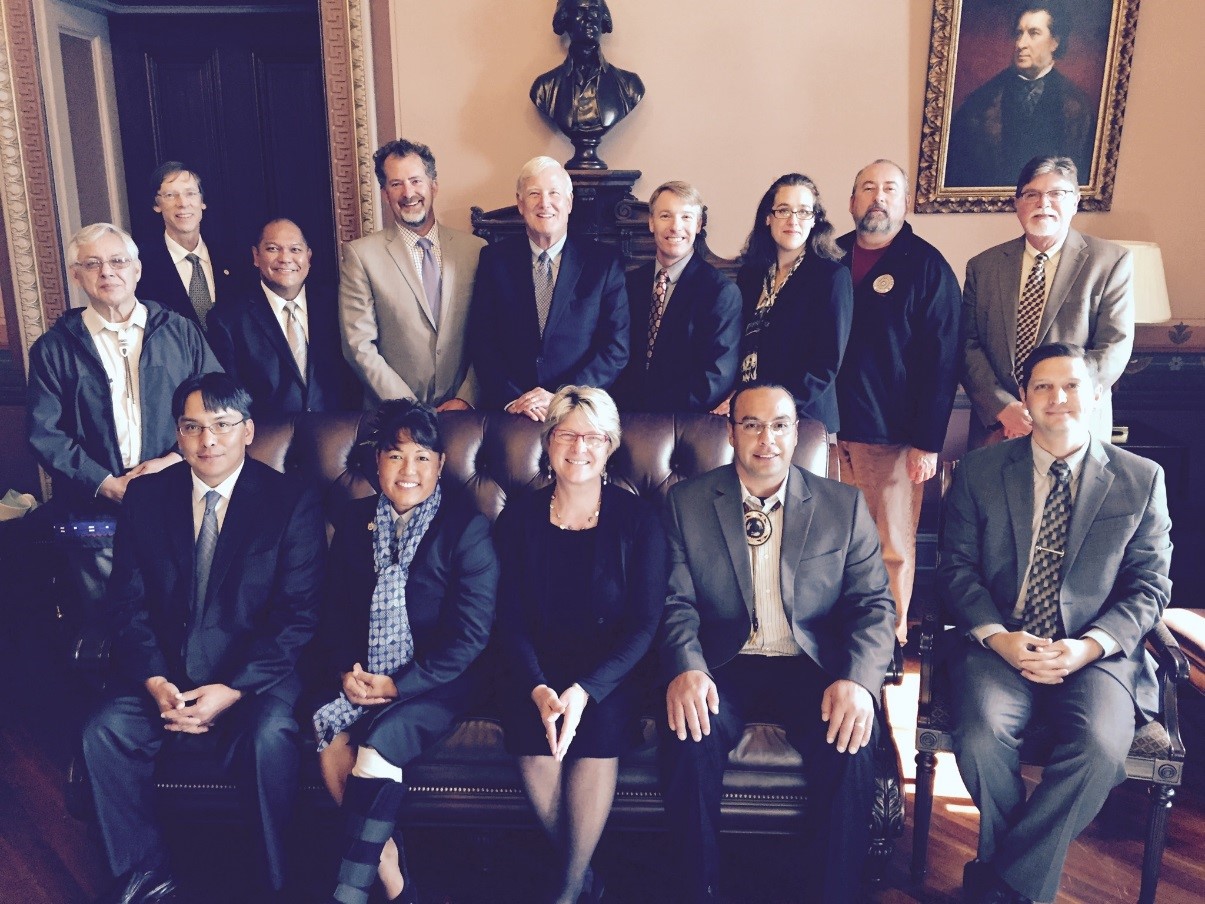
With the world's largest mountain ranges, deepest canyons, and most biodiverse ecosystems, the natural beauty of our ocean inspires a sense of wonder unlike any other place on Earth. President Obama has recognized the critical role of states and local communities in ocean decisions. With the advent of the National Ocean Policy five years ago, the Administration recognized and empowered local regions to participate in decision making that affects their coasts and our ocean. Next year, two of these marine regions, the Northeast and the Mid-Atlantic, will deliver the Nation’s first Regional Marine Plans.
In an important step toward a fully collaborative ocean policy, State, tribal, and local leaders charged with coordinating national ocean policies across jurisdictions recently reconvened at the White House. Known as the National Ocean Council (NOC)’s Governance Coordinating Committee (GCC), these leaders are championing important ocean issues that have enormous impacts to our economic and cultural relationship with the ocean, coasts, and Great Lakes.
The GCC was originally created in 2010 when President Obama signed an Executive Order to ensure the protection, maintenance, and restoration of U.S. ocean, coastal, and Great Lakes ecosystems and resources, and the benefits they provide. The GCC, which was recently reconvened with new members, advises the NOC on ocean issues that cut across political, jurisdictional, and geographic boundaries. Over the next two years, the new members of the GCC will provide guidance on the development of strategic action plans, policy and research priorities, and the implementation of the National Ocean Policy through meaningful dialogue with the NOC.
The new GCC members are:
- Leo Asuncion, Acting Director, State of Hawaii Office of Planning and State of Hawaii Coastal Zone Management Program (Co-Chair)
- Senator Kevin Ranker, Washington State Senate (Co-Chair)
- Ted Diers, Administrator, State of New Hampshire Department of Environmental Services (Vice Co-Chair)
- Tribal Chairman T.J. Greene, Makah Tribe (Vice Co-Chair)
- Michael Bolt, Chairman, United South and Eastern Tribes Natural Resources Committee
- Council Member Elle Cochran, Maui County Council, HI
- Supervisor Greg Cox, San Diego County, CA
- Jennifer Hennessey, Senior Policy Lead, State of Washington Department of Ecology
- Mayor Reggie Joule, Northwest Arctic Borough, AK
- Joe Oatman, Deputy Manager of the Department of Fisheries Resource Management, Nez Perce Tribe
- Mayor Philip Stoddard, South Miami, FL
- Nick Tew, Alabama State Geologist
During their first meeting, the new GCC members built a rapport, elected co-chairs and co-vice chairs, unanimously passed a charter and rules of procedure, and began the earnest deliberation of ocean policy topics critical to their communities.
After the meeting, Washington State Senator and newly elected GCC co-chair Kevin Ranker stated, “I am honored to have been chosen by my colleagues to help lead this important effort to advance the stewardship of our Nation’s ocean. Our ocean is an incredible resource that presents incredible opportunities. The stewardship of our ocean is critical for not only the future of our ocean, but the health and wealth of our great nation. We must protect the ocean and the hundreds of thousands of jobs that depend upon it.”
The changing climate, chemistry, and temperature of the ocean, coupled with competing uses of ocean resources, have the potential to impact every person in the country, even those far away from the coast. The GCC’s two-day meeting provided an opportunity for the GCC members to share their stories and examine the great challenges facing indigenous people and communities who live and depend on our Nation’s coasts. Through passionate discussion, the GCC members rallied around the theme of “Ocean Change” to help focus their future efforts. This theme includes worldwide shifts in ocean acidification, sea levels, and coastal erosion, all of which impact the economic and cultural relationships that Americans have with the ocean, coasts, and Great Lakes.

Leo Asuncion, the other GCC Co-Chair, from the State of Hawaii Office of Planning and State of Hawaii Coastal Zone Management Program, remarked, "[w]e bring a positive, balanced, and experienced view from across the Nation, and we look forward to working with the National Ocean Council to ensure that ocean and coastal related issues are addressed. It is our aspiration that we will be able to make a difference during our terms on the GCC."
Moving forward, the members of the GCC will serve as “ocean ambassadors” who will work together to bring ocean concerns, from every corner of the country, to the attention of the White House, as well as bring information back to their own constituents on national progress in addressing ocean issues and supporting informed ocean planning. Given the various challenges surrounding the ocean, it is essential that we at the National Ocean Council – and across the Federal government more broadly – work in tandem with State, tribal, and local leaders, like those who serve on the GCC, to protect the bodies of water that make our Nation great.
Beth Kerttula is Director of the National Ocean Council.

